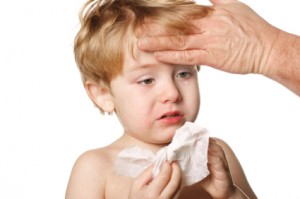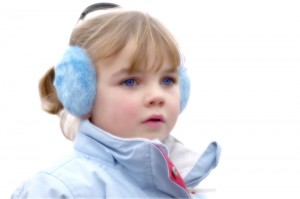Infant Cold And Stuffy Nose Remedies
 A running or stuffy nose is probably the most common symptom encountered in infants. All children, at sometime or the other, will have this problem. In a majority of cases, the cause is infant cold, a viral infection or an allergy.
A running or stuffy nose is probably the most common symptom encountered in infants. All children, at sometime or the other, will have this problem. In a majority of cases, the cause is infant cold, a viral infection or an allergy.
In between due to congestion and infection, the nose may get blocked and cause breathing distress to the child. After an acute attack of cold subsides, the nose may continue to run for a prolonged period if the infection is not properly controlled.
For small babies, a blocked nose can be distressing as it can cause feeding problems because sucking becomes difficult. On the other hand, a running nose in school- going children may be embarrassing for both teachers and parents.
Though it seems to be a minor problem, it needs to be attended to promptly and some symptomatic treatment has to be given make the child comfortable.
Viral infection in infants
Small children are prone to viral infections during a change of weather. Any member of the family who has a common cold may spread viral droplets into the air, which are easily inhaled by an infant.
The child will have sneezing and a watery discharge from the nose and the nose may get blocked. There may be fever (99-100’F) and the child looks sick. It is very important not
to allow anyone suffering from a cold to handle the infant.
To bring down the fever, Paracetamol syrup should be used instead of aspirin, as the latter can cause complications, damaging the liver and brain of the child (Reye’s syndrome). Consult your doctor as he would know whether the child needs antibiotics.
If antibiotics are advised, do complete the full course as stopping the course midway may cause chronic problems.
Infant Allergic Rhinitis
If the child is over one year old and has a running nose with sneezing lasting over a week, the cause is an allergy. The allergy is often due to pollens or animal fur. The diagnosis of allergic rhinitis is made if the child’s symptoms recur each year during the same season.
Consult your doctor to confirm the diagnosis and try to avoid contact with any substance that provokes the child’s allergy.
Complications of common cold in baby
 Normally a common cold subsides in less than a week’s time. However, it can get complicated if there are a secondary infection with other organisms e.g. bacteria. If the temperature is over 100°F and there is yellowish or greenish discharge from the nose, consult your doctor.
Normally a common cold subsides in less than a week’s time. However, it can get complicated if there are a secondary infection with other organisms e.g. bacteria. If the temperature is over 100°F and there is yellowish or greenish discharge from the nose, consult your doctor.
The infection may spread from the nose and go downwards to cause bronchiolitis. Occasionally the child may develop meningitis following an attack of common cold. If the child has high fever with breathlessness or wheezing, take her to a hospital.
Some children may complain of earache following an attack if common cold. This is because the throat infection may spread into the middle ear cavity and cause a condition known as Otitis media. Sometimes it leads to middle ear infection in children.
When this complication occurs there may be a discharge from the ear as well due to ear infection in children. An ENT specialist should be consulted if there is earache following a common cold. Early treatment prevents complications.
Measles is very common in children and may start off like an attack of common cold. A rash usually appears on the third or fourth day. Therefore, if any child is suffering from a viral cold, you should watch out for rash on his body.
A are complication is infection of the coverings of the brain – meningitis. If your child develops lethargy and drowsiness, along with vomiting, consult your doctor without any delay. Meningitis is a serious complication and the child should be hospitalized.
Nose Block can affect studies in children
Running nose is very common in children. Some children any have nose block due to deviated bone of the nose, a growth (polyps), chronic sinusitis and enlarged adenoids (tonsils at the back of the nose ).
Most of the time they have difficulty in breathing through the nose. As a result they cannot sleep well in the night due to frequent nose blocks. There is dryness and irritation in the throat as well.
They irritable and cannot concentrate on studies because they get less oxygen due to hampered breathing. This may be the cause of their not doing well in studies.
If your child has a chronic nose block do not use nasal drops for a long time on your own. Consult an ENT specialist to find out the exact cause of the nose block and then start the appropriate treatment.
Baby Cold Stuffy Nose Treatment Remedies
When your child has a cold, you can reduce his discomfort in several ways. Make him drink plenty of fluids. To reduce nasal congestion, Antihistaminics (Avil, Hisnofil, Phenergan, Triominic) are given. In case of severe nose blockage, paediatric nasal drops can be used with your doctor’s advice.
As home remedies, steam inhaling gives relief in breathing. Hot tea with Ginger and Tulsi is very effective.
Precautions
Do not use adult nasal drops in children. Overuse of nasal drops can cause rebound congestion. Therefore, they should be used only when advised.
One of the natural methods of decongesting a child’s nose is by adding salt to lukewarm water and dropping it into the nose using a cotton swab. Steam inhalation with ‘vicks’ or ‘eucalyptus oil’ can also help to open a blocked nose. Fever can be brought down with syrup paracetamol.
Antibiotics should be given strictly under medical advice. Keep the child warm. Switch air conditioners off. There is no objection to sponging the child. If the child is not running a high temperature he can be bathed.